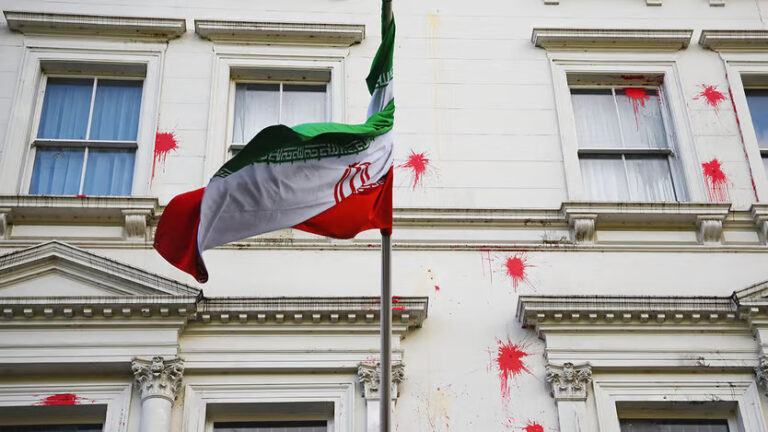WASHINGTON (Reuters) – President Barack Obama’s top diplomat and defence chief head to Seoul this week to discuss ways to respond to North Korea and deter it from any future attack after the sinking of a South Korean warship.
But the high-profile visit by Secretary of State Hillary Clinton and Defence Secretary Robert Gates risks angering China in the process, with an expected announcement of U.S.-South Korean military exercises that have set off alarms in Beijing.
Tension between North and South Korea remain high following the March sinking of the warship, Cheonan, killing 46 South Korean sailors. Pyongyang has denied responsibility and escaped censure this month from the United Nations, which condemned the attack but, in deference to China, did not blame North Korea.
Assistant Secretary of State Kurt Campbell said the talks in Seoul were aimed at assessing the next steps with North Korea, including whether and how to resume stalled talks about Pyongyang’s nuclear program. Pyongyang said this month it was willing to return to disarmament talks, in limbo since 2007.
“The United States is considering a variety of options associated with North Korea and we will be in deep consultations,” Campbell said.
But he stressed that an essential precondition for any new talks would be that Pyongyang cease its “provocative ways” and commit to denuclearization of the Korean peninsula.
Victor Cha, a former director of Asian Affairs at the White House National Security Council under the Bush administration, said he expected that re-engagement will take a back seat to the main message of deterrence during the visit to Seoul.
“Right now on this trip the focus is going to be on the deterrence part, that will be the big public message … But privately, the conversations will also deal with getting these talks back on track,” said Cha, who works for the Centre for Strategic and International Studies think tank in Washington.
The visit has symbolic overtones, a show of U.S.-South Korean unity 60 years after the outbreak of the 1950-1953 Korean War. Gates will meet some of the 28,000 U.S. troops stationed in South Korea on Tuesday.
The trip will culminate Wednesday in the first talks between the U.S. and South Korean secretaries of defence and state. U.S. officials say the top-level event, reserved for only the closest U.S. allies, shows how important Obama views relations with South Korea, Asia’s fourth-largest economy.
Clinton also plans discuss the U.S.-South Korea economic relationship, where President Barack Obama has vowed to push through a long-stalled free trade agreement, as well as South Korea’s preparations to hold the a G20 summit this year.
WAR GAMES
U.S. officials say the talks are likely to yield at least one concrete result: the announcement in Seoul of a series of joint U.S.-South Korean military drills over a period of months in both the Yellow Sea and the Sea of Japan.
“These are exercises that enhance our anti-submarine warfare capabilities. They will also, by extension, be a show of force to the North Koreans, and send a message — what we hope to be a very strong message — of deterrence,” said Pentagon Press Secretary Geoff Morrell.
China, North Korea’s sole ally, has voiced deep concerns about any U.S.-South Korean drills in the Yellow Sea, which separates China and the Korean peninsula, and urged regional powers to put the Cheonan incident behind them.
U.S. officials, briefing reporters ahead of the trip, dismissed those concerns, saying drills in international waters in the Yellow Sea or elsewhere were “routine.”
“This is about sending a message to (North Korea). It’s not about sending a message to the Chinese. And it should not be interpreted as such,” Morrell said.
John Park, a researcher at the United States Institute of Peace who studies Chinese-North Korean relations, said drills risked aggravating ties between the United States and China.
“As much as the (U.S.-South Korean) announcement will be focussed on a sending a message to North Korea, the unintended consequence is that messages are also being sent to China,” Park said.
Beijing broke off military-to-military contacts with the United States this year after the Obama administration notified Congress of a plan to sell Taiwan up to $6.4 billion (4.18 billion pound) worth of arms. Underscoring its displeasure, Beijing turned down a proposed fence-mending visit by Gates to China in June.
Park said that inside China, some believe the United States and South Korea are using the Cheonan “as its own pretext to enlarge the scope of the U.S.-South Korean alliance” west towards Chinese coastal waters.
“Their question is: Will the anti-submarine warfare exercises signal an expansion of the coverage area of the U.S.-(South Korea) alliance?”
(Additional reporting by Andrew Quinn; Editing by Stacey Joyce)











+ There are no comments
Add yours